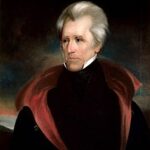The Jackson Bank War Decision
President Andrew Jackson declared war on the Second Bank of the United States in 1833. He ordered Treasury Secretary Roger Taney to withdraw federal deposits from the national bank. These funds were redistributed to Democratic-friendly state banks nicknamed “pet banks.” Jackson viewed the bank as a corrupt institution that concentrated too much power. 💰 The president believed the bank violated constitutional principles and served wealthy elites.
Constitutional and Political Opposition
The Jackson Bank War sparked fierce congressional debates about federal financial authority. Henry Clay and Daniel Webster led Whig opposition to Jackson’s actions. They argued the president exceeded his constitutional powers by unilaterally destroying the bank. Nicholas Biddle, the bank’s president, restricted credit to pressure Congress. ⚠️ This credit contraction worsened economic conditions nationwide.
Economic Justifications
Jackson claimed the Second Bank manipulated currency and credit for political gain. He argued state banks could better serve regional economic needs. The president believed removing federal deposits would democratize American finance. 📊 Critics countered that destroying the national bank would destabilize monetary policy and harm commerce.
Impact:
Immediate Financial Chaos
The Jackson Bank War created immediate economic instability across American markets. State banks expanded credit rapidly without federal oversight or regulation. Land speculation increased dramatically as “pet banks” loosened lending standards. 📉 Currency values fluctuated wildly between different state banking systems. Foreign investors lost confidence in American financial institutions and monetary policy.
The Panic of 1837
Jackson’s banking policies contributed directly to the devastating Panic of 1837. Without a central bank, the government couldn’t regulate currency or credit effectively. State banks collapsed when land speculation bubbles burst nationwide. Unemployment soared as businesses failed during the economic depression. 🔥 The crisis lasted nearly seven years, causing widespread poverty and social unrest.
Long-term Political Consequences
The bank controversy permanently altered American political party alignments and ideologies. Whigs formed specifically to oppose Jackson’s perceived executive tyranny and economic policies. Democrats embraced limited government and states’ rights as core principles. Regional tensions increased as different areas experienced varying economic impacts. 🌍 The debate over federal versus state financial control continued through the Civil War era.
